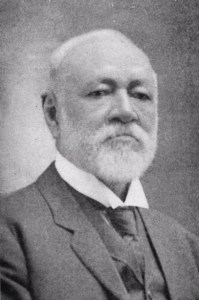
A Chosen Exile
by Allyson HobbsGenres: History, Nonfiction, United States
Published on October 13th 2014
Pages: 382
Format: Hardcover Source: Library


Between the eighteenth and mid-twentieth centuries, countless African Americans passed as white, leaving behind families and friends, roots and community. It was, as Allyson Hobbs writes, a chosen exile, a separation from one racial identity and the leap into another. This revelatory history of passing explores the possibilities and challenges that racial indeterminacy presented to men and women living in a country obsessed with racial distinctions. It also tells a tale of loss.As racial relations in America have evolved so has the significance of passing. To pass as white in the antebellum South was to escape the shackles of slavery. After emancipation, many African Americans came to regard passing as a form of betrayal, a selling of one's birthright. When the initially hopeful period of Reconstruction proved short-lived, passing became an opportunity to defy Jim Crow and strike out on one's own.Although black Americans who adopted white identities reaped benefits of expanded opportunity and mobility, Hobbs helps us to recognize and understand the grief, loneliness, and isolation that accompanied and often outweighed these rewards. By the dawning of the civil rights era, more and more racially mixed Americans felt the loss of kin and community was too much to bear, that it was time to pass out and embrace a black identity. Although recent decades have witnessed an increasingly multiracial society and a growing acceptance of hybridity, the problem of race and identity remains at the center of public debate and emotionally fraught personal decisions.
“Passing” didn’t always mean changing racial identities. At the beginning of the United States, both black slaves and white indentured servants sometimes passed as free people to run away. But as slavery became more entrenched in racial identity passing came to mean black people living as white.
Some people just did it occasionally to go into a certain segregated area. Others moved away from their hometowns where everyone knew them and cut off all contact with family and friends.
Immediately following the Civil War there as a period of more opportunities for black men. Some of those who might have passed in an earlier generation chose not to at this time.
P.B.S. Pinchback was the first black governor in the U.S. He was also elected to Congress but had difficulty being seated because of his race.
As Jim Crow laws were passed in the South, passing started to happen more often again until the rise of the Civil Right movement.
Liked
- The stories of people who had to decide what was best for them to do and the impact on their families
- The story of the man who integrated a southern college decades before the college fought against integration. He got his degree because everyone thought he was white.
- It was sad to read about changing social mores that allowed a man to go openly to an integrated college but then barred his grandchildren because the college no longer admitted black students.
Didn’t Like
- This isn’t the most narrative book so it could be slow going to read it. I had to take some breaks and then get back into it.
Quotes
“I decided some time ago that the Negro people need all the good, intelligent, unbelligerent representatives they can get in this world, and I’m trying to be one.”
– Herb Jeffries, an actor that producers tried to convince to bill himself as Latin, on why he refused.
“…although many of her friends would pass without a moment’s hesitation just to be free from color problems, poor-paying jobs and all the other vicious injustices that all too often go with being a Negro,’ she had a different perspective after experiencing the darker side of passing. Listening to white coworkers speak about blacks with bitter contempt, teetering on a ‘state of nervous collapse,’ and living in constant fear that her secret would be discovered, she felt relieved to be ‘through with passing.’ No longer did she have to worry about returning coworkers’ social invitations or getting sick on the job and being taken home by a coworker who would discover that she lived in a black neighborhood.”Â
– based on an anonymously article in Ebony in March 1951




Hopping over from the Nonfiction Reading Challenge….
This sounds like something my Diversity Book Club would like. We’ve discussed passing while reading various other books. I especially remember it related to the Hemingses of Monticello, but we haven’t read one on the topic as a whole.